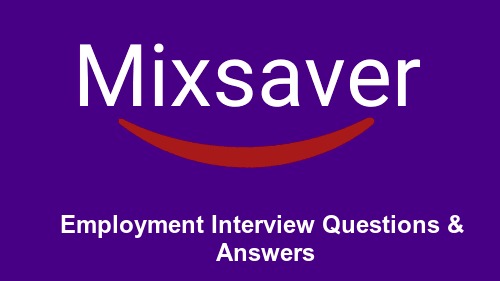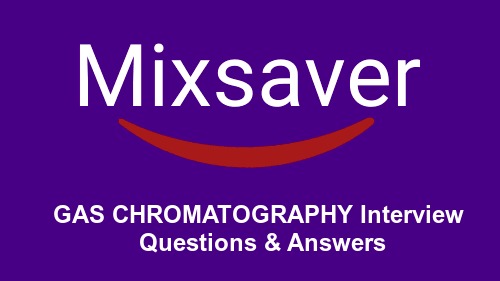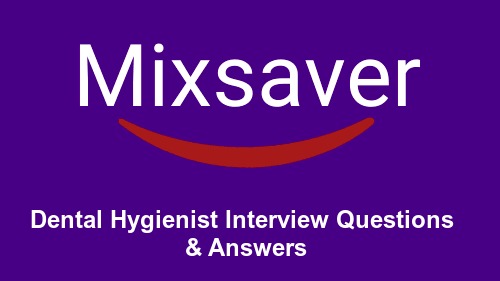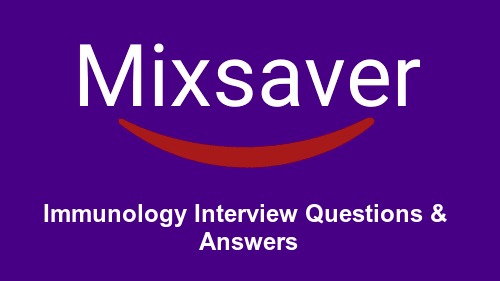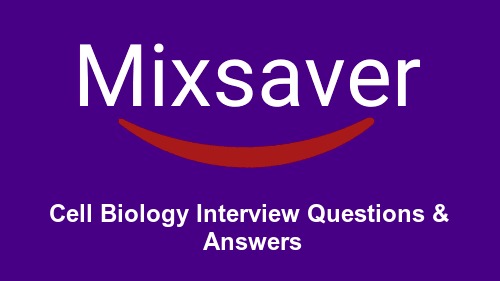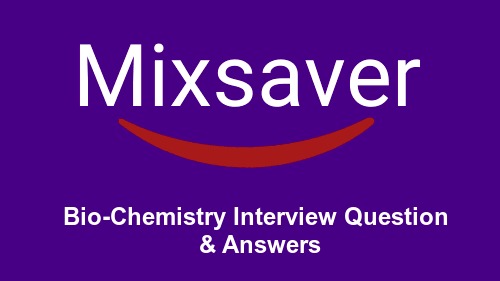1. Where do you see yourself in 10 years?
You want to grow into the position and into a more responsible and respected position, but still do the work you care about. You also might want to add: Hopefully, I'll be alive, healthy, happy, and thriving in this career. That you hope to be one of the best loyal employees and continue to work for this firm.
2. What motivates you to do a good job?
Please do not say money even if it is. You should say “to be motivated by life’s noble pursuits” or something similar. That you want recognition for a job well done. You want to improve. You want to help others or be a leader in your field.
3. What is your greatest strength?
This is your chance to shine. You are being asked why you are a good employee so don’t hold back – do stay positive. You might say that you thrive under pressure, are a great motivator, an amazing problem solver or have extraordinary attention to detail. The interviewer is looking for work-related strengths
4. What is your biggest weakness?
If you are asked this question, give a small work related flaw that you are working hard to improve. For example “I have been told I occasionally focus on details and miss the bigger picture, so I have been spending time laying out the complete project every day to see my overall progress.
5. Would you rather be liked or feared?
Neither, I would rather be respected.
6. If the interviewer asks if you have any questions to ask them?
Ask about benefits if they have not been covered already. “How soon could I start, if I were offered the job, of course.” You may also ask what you would be working on. Specifically, in the role that you are applying for and how it affects the rest of the company.
7. Describe yourself of tell me about yourself?
You might want to say hard worker, quick and eager learner, pays attention to detail. I am versatile and can perform well in many kinds of positions. Basically, I am an experienced and flexible person and can be successful at any kind of work. Describe yourself as outgoing, hardworking, dependable, eager to learn and grow professionally, etc. Fast paced & quick learner. This question is usually asked in order to gauge how a person perceives himself. Just be honest. Talk about your strengths. Mention an instance when you used your conflict resolution skills or selling skills or whatever.
8. How to answer a difficult question the employer has no business asking?
Cheerfully and repeatedly stonewall when asked for negative information.
9. Why did you decide to interview for this position?
Discuss your need for different types of work, for increased responsibilities and challenges, and your desire to be part of a firm that is growing. You may also want to add that you want to work for a firm that values all of your skills.
10. Some questions you may want to ask your interviewer if applicable:
How many billable hours are expected and what constitutes a billable hour?
What are some of the career pathways offered by your firm?
Are there different types of partners?
How is the firm governed?
Is there a small committee that makes all the important decisions?
Are decisions made by associates as well?
How are evaluations handled?
What type of training does the firm do?
What are the firms overall growth prospects?
What are they in your specific practice area?
Are partners accessible?
11. What would you say is your greatest weakness?
When you're asked what your greatest weakness is, try to turn a negative into a positive. For example, a sense of urgency to get projects completed or wanting to triple-check every item in a spreadsheet can be turned into a strength i.e. you are a candidate who will make sure that the project is done on time and your work will be close to perfect.
12. What do you do for fun?
A possibility might be: I enjoy jogging, skydiving, and traveling to exotic countries when my schedule permits.
13. Here is another strange question: We value creativity among our employees. With that in mind, what kind of plant would you be and why?
You could say – I would be a tree because they are tall, strong and live a long life.
14. What motivates you?
I am motivated when helping the firm to achieve its goals. If you were being interviewed by a not-for-profit organization you could say something like this: I like to know that my work is making a difference.
15. What is your greatest weakness?
I am too focused on work and I need to find more time to relax. I am too focused on my work and need to develop some after hour hobbies.
16. Why should I hire you for the job?
You should hire me because I am the best person for the job. I realize that there are likely other candidates who also have the ability to do this job. Yet I bring an additional quality that makes me the best person for this job – my passion for excellence. I am passionately committed to producing truly world class results. Then you could give an example.
17. What is your long range objective?
Within five years I would like to become the very best (profession) that this company has on staff. I want to work toward becoming the expert that others rely upon. And in doing so, I feel I will be fully prepared to take on any greater responsibilities which might be presented in the long term.
18. Are you a team player?
“Yes, I am very much a team player. In fact, I have had opportunities in my internship, school and athletics to develop my skills as a team player. For example, on a recent project… “ Emphasize teamwork behavioral examples and focus on your openness to diversity of backgrounds. Talk about the strength of the team above the individual.
19. Tell me about yourself. This is usually the opening question in an interview and they are basically asking ‘why should I hire you?
’ Your answers should be brief but relevant to your qualifications and experience related to the job you are applying for. Talk about your education, internship experience and skills. Keep the topics and subject matter business related and professional at all times.
20. Where do you see yourself in five years?
What they really want to know is how long you will be committed to working for the company. Firms tend to not hire someone who will only be around for a year or two. Let the interviewer know that you are looking for stability. Also let them know that you are willing to take on additional responsibilities and learn new skills if it will help the firm.
21. What are your weak points?
What they want to know is how realistic and honest you are. You must turn a negative into a positive. If you did not have an opportunity to develop certain skills or experience at your last internship then you can explain how eager you are to gain that experience in a new position.
22. What do you know about our firm?
This is one of the most important questions in an interview. It shows if you are serious about the opportunity. This goes back to you doing your homework and preparing for the interview. You want the interviewer to be confident that you know the firm but let the interviewer tell you about the company too. Keep your answers simple and to the point.
23. Why should we hire you?
Try and focus on what you can do for the firm, the practice group or the individual. If you are interviewing with a top firm and are aware of their reputation, let them know. It is a privilege to work for the top firms. Getting into the best firms requires knowledge of why these firms are so special. Your answers should be focused on your strengths and proven track record of a job well done.
24. What do you look for in a job?
An opportunity to utilize your skills, contribute to the firm and to be recognized for a job well done. Talking about salary, benefits and or vacation here is not suggested.
25. Provide me with the definition of the position for which you are being interviewed.
Keep your answer brief. Use a definition that lists actions and expected results for the people you’ll be working for. Think of how you’ll perform as a team member and independently. Making the day easier and more productive for the people you’ll be working for is very important.
26. If you could choose any company to work for, where would you work?
Most firms want to hear that you want to work for them. Talk about the firm and the things you admire and respect. Tell them honestly and without a lot of fluff.
27. Why do you want to work for a small firm?
You enjoy the camaraderie and family-like atmosphere. Small firms allow actions to take place much quicker than at large firms.
28. If you do not get hired by our firm, what will you do?
Analyze what I could have done better during the interview. Then take that knowledge with me into my next interview with the next firm.
29. Do you have any questions for me?
Will I have an office key so that I can come in on my weekends? Show enthusiasm. If you really want the job, it is best to ask the following types of questions directly after the interview:
I’m very interested in the job, is there anything I can do to improve my chances of working for the firm
What are the next steps in your process?
How would you prefer I follow up?
May I supply my references?
Think of other follow-up questions prior to the interview
30. Remember the following:
Be honest
Never reveal a sour grapes attitude – stay positive
Allow the interviewers to reach their own conclusions
Evaluate your resume from each of the interviewer’s perspectives.
Review your own background before you interview.
Make sure your answers are short, concise and to the point.
Always know your audience.
Do not allow yourself to become too relaxed.
